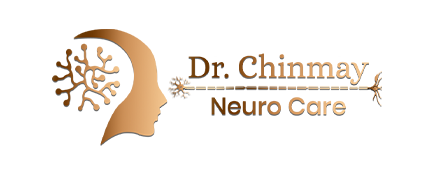Neuro-infections are infections that affect the nervous system, including the brain, spinal cord, and peripheral nerves. These infections can be caused by bacteria, viruses, fungi, or parasites, leading to serious health complications if not treated promptly. At Dr. Chinmay’s Neuro Care Clinic in Balewadi-Baner, Pune, patients receive specialized care for neuro-infections from one of the best neurologists in Pune, ensuring accurate diagnosis and effective treatment. In this blog, we will explore the causes, symptoms, prevention, and treatment options for neuro-infections, helping you stay informed and proactive about your neurological health.
What are Neuro-Infections?
Neuro-infections refer to a broad category of infections affecting the nervous system. These infections can be classified into:
- Bacterial Infections: Such as bacterial meningitis and brain abscesses, often caused by Streptococcus pneumoniae and Neisseria meningitidis.
- Viral Infections: Including viral encephalitis, herpes simplex virus infections, and viral meningitis.
- Fungal Infections: Less common but severe, such as cryptococcal meningitis.
- Parasitic Infections: Caused by parasites like Toxoplasma gondii, leading to neurotoxoplasmosis.
Each type of infection has its unique set of symptoms and requires specialized treatment.
Common Symptoms of Neuro-Infections
The symptoms of neuro-infections vary depending on the type and severity of the infection but commonly include:
- Severe headaches
- Fever and chills
- Neck stiffness
- Seizures
- Confusion or altered mental state
- Sensory disturbances
- Weakness or paralysis in limbs
- Nausea and vomiting
If you or a loved one experiences any of these symptoms, it is crucial to seek immediate medical attention. Dr. Chinmay, one of the best neuro consultants in Pune, provides expert evaluations to determine the nature and severity of the infection and offers personalized treatment plans.
Causes and Risk Factors
Neuro-infections can occur due to various reasons, including:
- Weakened Immune System: Conditions like HIV/AIDS, cancer, or diabetes increase the risk.
- Unhygienic Living Conditions: Exposure to contaminated water or food can lead to infections.
- Travel to High-Risk Areas: Some regions have higher risks of certain infections, such as malaria.
- Injury or Surgery: Head trauma or neurosurgical procedures can introduce infections.
- Animal or Insect Bites: Rabies and tick-borne encephalitis are examples.
Understanding these risk factors can help in taking preventive measures to reduce the chances of contracting neuro-infections.
Prevention of Neuro-Infections
Preventing neuro-infections requires a combination of lifestyle changes, vaccinations, and early intervention. Here are some key preventive measures:
1. Vaccination
Vaccines play a critical role in preventing neuro-infections like meningitis, rabies, and Japanese encephalitis. It is advisable to stay updated with recommended vaccinations, especially for children and travelers.
2. Hygiene and Sanitation
Practicing good hygiene, such as washing hands regularly, avoiding contaminated water, and maintaining a clean living environment, reduces the risk of bacterial and parasitic infections.
3. Safe Food and Water Consumption
Consuming properly cooked food and filtered or boiled water can prevent infections like neurocysticercosis, which is caused by consuming food contaminated with tapeworm larvae.
4. Mosquito and Tick Control
Vector-borne diseases such as malaria and Lyme disease can cause neurological complications. Using insect repellents, wearing protective clothing, and keeping surroundings free of stagnant water can help reduce mosquito and tick bites.
5. Avoiding Close Contact with Infected Individuals
Some neuro-infections, like bacterial meningitis, are contagious. Avoiding close contact with infected individuals and practicing respiratory hygiene can help in preventing transmission.
6. Early Diagnosis and Treatment
If you experience any symptoms of a neuro-infection, seeking medical attention early is crucial. Dr. Chinmay’s Neuro Care Clinic in Balewadi-Baner, Pune, is equipped with advanced diagnostic tools to detect infections at an early stage, ensuring prompt treatment.
Diagnosis and Treatment of Neuro-Infections
At Dr. Chinmay’s Neuro Care Clinic, patients receive comprehensive evaluations to diagnose neuro-infections accurately. Some common diagnostic tests include:
- MRI and CT Scans: To identify inflammation, abscesses, or other abnormalities in the brain.
- Lumbar Puncture (Spinal Tap): To analyze cerebrospinal fluid for signs of infection.
- Blood Tests: To detect bacteria, viruses, or abnormal immune responses.
- EEG (Electroencephalogram): To assess brain activity in cases of encephalitis or seizures.
Once diagnosed, treatment depends on the type of infection:
- Antibiotics for bacterial infections like meningitis.
- Antiviral Medications for viral infections such as herpes encephalitis.
- Antifungal Therapy for fungal infections like cryptococcal meningitis.
- Steroids and Anti-Inflammatory Drugs to reduce swelling and inflammation in the brain.
- Supportive Care such as IV fluids, pain management, and oxygen therapy.
Dr. Chinmay, recognized as one of the best neurologists in Pune, provides expert treatment plans tailored to each patient’s needs, ensuring the best possible recovery outcomes.
Summary
Neuro-infections can have serious consequences if not addressed in time. However, with the right preventive measures, early diagnosis, and effective treatment, the risks associated with these infections can be minimized. If you or a loved one is experiencing neurological symptoms, do not hesitate to seek medical help from the best neuro consultant in Pune. At Dr. Chinmay’s Neuro Care Clinic in Balewadi-Baner, Pune, you will receive expert guidance and compassionate care to protect your neurological health.


